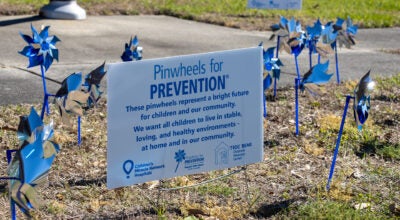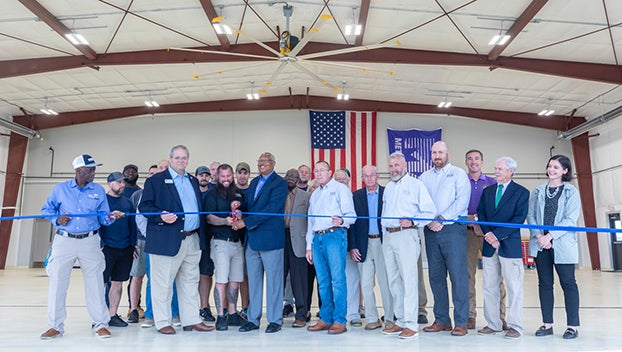Proposed rules differentiate between therapeutic massage and adult businesses
Published 8:06 pm Friday, April 27, 2018
As they work toward amending Washington’s zoning regulations, city officials are being careful to distinguish therapeutic massage businesses from massage parlors associated with the adult-business industry.
The city has not received any requests to open adult businesses, but the city wants to have rules governing such businesses in case such a request is received.
“The reason we started is we don’t have anything in our ordinances, or city code, that has to do with adult businesses. Traditionally, if it’s not listed in the code, it’s not supposed to be a use. According to the First Amendment … they should be allowed to go in a particular city. We’re trying to regulate where it’s going to go, sort of like Internet sweepstakes (sites). What we’re trying to do is get out in front of the adult businesses and make sure we have a place for them to go that’s compatible with the services they have. That’s how it really got started,” said John Rodman, the city’s director of community and cultural resources.
Massage businesses were included in the city code written in 1996, Rodman said, but there have been a lot of changes with what’s thought of as traditional massage parlors since 1996.
“So, that’s what we’re trying to do. We’re trying to separate the two and sort of lump the old, traditional type massager parlors into adult business and have them in the appropriate place, and then separate out massage therapy and have them in the appropriate place,” Rodman said.
Three therapeutic massage businesses are located in the city’s central business district, and the city wants them to remain there. However, the city would like to locate massage parlors associated with adult businesses in other areas of the city, such as industrial districts, Rodman said. “We’re trying to make sure we separate the two and make sure everybody knows the difference between the two. We’re not trying to lump them together as adult businesses. We’re trying to do the exact opposite and separate them,” he explained.
“There’s a number of different regulations and standards between a massage parlor and a massage-therapy business,” Rodman said.
The city’s Planning Board, at the request of the City Council, has been researching and developing standards for massage and adult businesses within the city limits. One of the challenges the board faced was defining different types of massage businesses and crafting specific rules pertaining to the operation of those different types.
Matt Wilson, whose wife operates a licensed therapy-massage business in the building at 141 S. Market St., said he understands why the city wants to differentiate between a therapy-massage business and “nefarious” massage parlors, but he questions the need for the city to regulate massage businesses.
“The state of North Carolina is actually probably one of the top five most difficult state in which to receive both chiropractic and massage-therapy licenses. They (licensed masseuses) have state and national boards that they’re governed by. So, adding another layer on the municipal layer could start to become redundant, to a certain extent,” Wilson said. “I think that would be our only concern, the redundancy … and the definition itself.”
Wilson said he believes it is important to define a therapeutic-massage business as part of the “health-and-wellness category.”
Wilson said when he and his wife first began providing therapeutic massages, they set out to change they way such businesses were perceived. Instead of being considered a luxury, therapeutic massages should be considered part of a health-and-wellness regimen, Wilson said.
“We think that is critical not only from a governance and regulation standpoint, but also from the people and the general public,” he said.
Wilson considers the “nefarious” massage parlors a blight on the therapeutic-massage industry.
Under the proposed regulations, a therapeutic massage business would need a license to operate and its health massage (and bodywork) therapists would have to be licensed by the state to perform such therapy. Employees would be required to be at least 21 years old. Patrons must be at least 21 years old to receive such therapy.
A health massage and bodyworks therapy business would be allowed in the city’s business historic, general business and office and institutional districts as a permitted use with special developmental standards.
The proposed regulations pertaining to an adult business defines such a business as an adult bookstore, adult movie theaters, adult live entertainment venues or massage parlors. However, adult businesses are not limited to those listed. An adult business would require a special-use permit, which would be issued by the city’s Board of Adjustment, and be allowed in the city’s heavy industrial and light industrial zoning districts. The special-use permit, which could include specific conditions, would be good for one year and must be renewed annually.
The proposed rules require that windows, doors, openings, entries and other similar items be covered, screened or treated so that views into the interior of the business are not possible from any public or semi-public area, street or way. An adult business must be at least 500 feet from residential districts, churches, parks, playground, school, library or areas where large number of children regularly travel or congregate.
The proposed regulations require an adult business to have a license issued by the city and operate only from 2 p.m. to 2 a.m. Employees and customers must be at least 21 years old.






